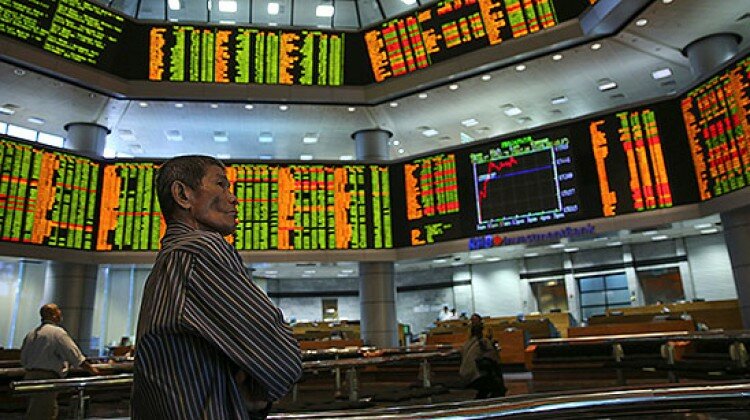
China is the world’s top trading nation and a key driver of global growth, so signs its economy is faltering – particularly when the US Federal Reserve is expected to raise interest rates for the first time in nearly a decade – have fuelled world recession fears.
US stocks bounced immediately after trading started on Tuesday, with the Dow jumping more than 300 points or 2 percent.
The Dow Jones industrial average fell 204.91 points, or 1.29 pc, to 15,666.44, the S&P 500 lost 25.59 points, or 1.35 pc, to 1,867.62 and the Nasdaq Composite dropped 19.76 points, or 0.44 pc, to 4,506.49.
In Europe’s midday trading, the pan-European FTSEurofirst 300 index had risen 4 percent, a day after dropping 5.4 percent amid panic selling in China and around the world.
The Dow sank more than 588 points on Monday, while the S&P 500 index fell more than 10 percent off its recent peak, in what investors refer to as a “correction”.
Benchmark mainland indexes have not only given up all the gains made from Beijing’s unprecedented stock market rescue in July, in which hundreds of billions of state dollars were directed into the market, but this week entered negative territory for the year-to-date.
Global markets were pummelled on Monday, with Chinese shares falling 8 per cent, prompting investor calls for remedial action from authorities that grew louder overnight after the Shanghai Composite Index slumped a further 8 per cent. China’s stock plunge has wiped out more than $US1 trillion in value from equities over the past four days.
The Shanghai index ended the day 245 points lower at 2,964.97. Stocks were up 3 percent in London, 4 percent in Frankfurt and 4 percent in Paris.
China’s slowing economy does hurt U.S. corporations that export to China, and its devalued currency does make U.S. products less competitive versus Chinese products.
China’s fall was the latest in a series of jarring declines that have defied multibillion-dollar government efforts to stem a slide in prices following an explosive market boom.
All 30 of the Dow’s component stocks were higher.
“We just saw a insane evaporation of gains after being up the majority of the day”, said Stephen Carl, principal and head equity trader at Williams Capital Group LP.
Crude oil futures settled up $1.07, or 2.80 percent, at $39.31 a barrel. “I don’t think we are out of the woods yet”, Mr Jamieson said.
China’s Central Bank said the rate reduction would cut “the social cost of financing to promote and support the sustainable and healthy developments of the real economy”.
Oil rebounded some from Monday’s steep declines.
BRENDAN MCDERMID/REUTERS These traders at the New York Stock Exchange react to Tuesday’s recovery. The contract plunged $2.21 on Monday to close at $38.42.